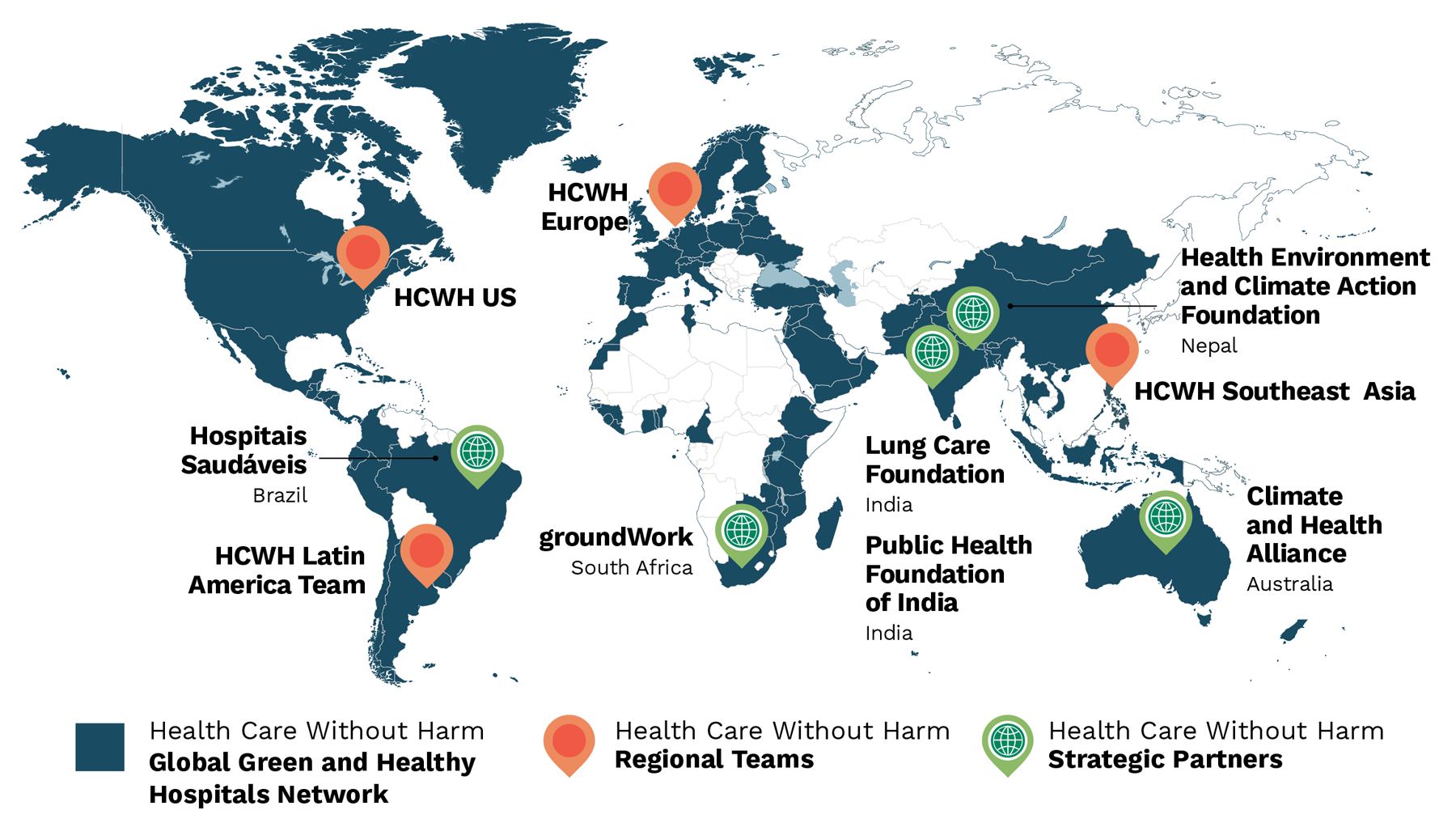Health Care Without Harm is proud to present its 2024-2028 International strategic plan, which addresses the interconnected challenges of climate change and health, and sets the course for the collective work of our international network.
Our focus will center on climate mitigation, climate adaptation, and plastics phase-out, ensuring that global health care policies, practices, and narratives present a unified vision of a just transition from fossil fuels for healthy people and the planet.
Under this new strategy, by 2028 we will see the health sector worldwide:
- Accelerate its path towards decarbonization as a leader in the societal transition away from fossil fuels.
- Escalate its implementation of adaptation actions, particularly those that align with mitigation measures, to build climate resilience.
- Call out the plastics crisis as a health crisis to advance decarbonization and detoxification and end plastic pollution.
With regional teams in Europe, Latin America, Southeast Asia, and the U.S., a Global secretariat, and strategic partner organizations around the world, Health Care Without Harm’s powerful international network engages the health sector to advance environmental health and justice, transforming the health sector globally to deliver on its core value: “First, do no harm.”
Despite its mission to prevent, treat, and cure disease, the global health sector is responsible for nearly 5% of net greenhouse gas emissions. If it were a country, the sector would rank as the fifth largest emitter globally, and 84% of health care emissions can be traced back to fossil fuel combustion. Additionally, the widespread use of single-use plastics in health care – accounting for approximately 25% of health care waste in regions like the U.S. and U.K. – exposes patients and workers to harmful chemicals daily.
The sector is uniquely positioned to drive transformative change. With its trusted voice and significant influence over 11% of the global economy, it can profoundly impact market innovation, policy, and purchasing decisions.
Recent research estimates that without a rapid phase-out of fossil fuels, up to 1 in 12 hospitals worldwide will be at high risk of total or partial shutdown from extreme weather events by the end of the century. Over 70% of these hospitals come from low- and middle-income countries, with Southeast Asian hospitals facing the highest risk of damage from extreme weather events. Adaptation is needed for these high-risk hospitals, yet we must also prioritize mitigation actions – reducing emissions and transitioning away from fossil fuels – as adaptation alone will not be enough to keep our hospitals safe from the climate crisis.
Fortunately, we are ready to accelerate systemic change in the areas where the most daunting challenges facing our planet meet our strength as a network, our shared expertise, and our track record. Health Care Without Harm plays a unique role as a system orchestrator: transforming the health sector not by scaling a single solution, but rather by mobilizing and coordinating unified efforts to solve problems at scale.
“Our network, global convening power, and deep experience in the climate and health space differentiates us from other organizations. We have built the scaffolding that can support the health sector in leading the rest of the economy into a healthier, fossil-fuel free future” said Gary Cohen, Health Care Without Harm Co-Founder.
